Do you or a loved one suffer from a dependency on drugs or alcohol that could require drug or alcohol rehab in Luton?
Are you reluctant to seek help for your addiction [1] because you are worried about the consequences this could have for mental and physical well-being? [2]
If so, you have come to the right place for a rehab programme.
Each year Rehab 4 Addiction assists hundreds if not thousands of addiction sufferers in Luton to establish a healthy lifestyle free from drug and alcohol abuse.
Many of these people came to us feeling hopeless and beyond ‘repair’ even at rehab, but this feeling was quickly transformed into positivity and hope.
This is because suitable addiction treatment at an alcohol or drug rehab can be hugely effective.
Alcohol and drug rehabilitation in Luton is available for a number of addictions [3], including:
Addiction can have a massive impact on both a person’s quality of life and their life expectancy, [5] so proper drug detox treatment and inpatient rehab treatment at a CQC registered rehab can be essential for long-term recovery.
Get the help you need from a drug and alcohol rehab in Luton with free aftercare by calling our expert team on 0800 140 4690

Every person affected by an addiction has a unique story and reasons they first began using and abusing drugs and alcohol.
However, there are a some similar environmental and genetic factors that crop up time and time again in addiction.
Professor Alison Goate found [6] that people who have a protein-coding gene known as CHRM2 – (muscarinic cholinergic receptor 2) had a higher chance of using drugs and alcohol.
Eric J. Nestler, in research on chromatin regulation, [7] has also studied the physical causes of addiction.

Rehab 4 Addiction is owned and operated by people who have successfully defeated drug and alcohol addiction in their own personal lives in the not-so-distant past.
This means we understand exactly what you are going through when you consider seeking out help for your addiction and finding your way towards recovery. [8]
To help you tackle your issues, we have set up a helpline dedicated to assisting you through the process of selecting addiction treatment in Luton.
Let us help you find the best drug and alcohol rehab in Luton – call us today on 0800 140 4690

Rehab is for anyone who needs help with drug and alcohol addiction, and there are different types of rehab for each.
One of the main differences in rehab treatment in Luton is the choice between inpatient and outpatient care.
Outpatient care invoices attending a rehab centre during the daytime, and then going home for the evening.
Inpatient care is where a person receiving drug or alcohol care [9] will remain at the centre during the entirety of their treatment, sleeping there also.
Many people enquire about the possibility of attending rehab as an outpatient, as they prefer the idea of going home each evening.
However, this type of treatment is only suitable for some patients, with others needing inpatient care as this really is the only option available for their needs.
For help deciding between inpatient or outpatient drug and alcohol rehab in Luton, call us today on 0800 140 4690.

Rehab centres in Luton and the surrounding area is available to treat those who are suffering from addiction.
Our rehab centres offer treatment for different addictions such as alcohol as well as substances that include cannabis, cocaine, heroin and prescription drugs, as well as offering help for those currently coping with gambling addiction.
Admission to a drug and alcohol rehab in Luton is an easy process and one which we are happy to help you with.
This can be done with an assessment which is carried out during a short telephone call with our centre, where we can go over the various types of treatment available.
Once we are aware of your needs, we can recommend the right course of treatment at rehab for you.
Time spent at our Luton rehab centres can vary from as little as a week to up to 90 days. Again, this may be down to your specific course of rehab treatment and your individual needs.
Everyone’s addictions vary and so will their treatments. The most important thing for you, or a loved one is getting you the help that you need.
Start the admissions process at a drug and alcohol rehab in Luton today by calling us on 0800 140 4690
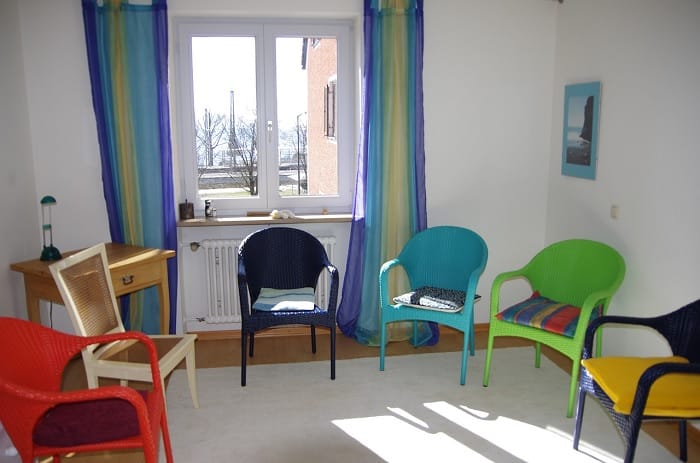
For some people, coming to terms with the realisation they are suffering from addiction can take some time.
For some, it can take several years before they admit they have a problem and are in need of help and treatment.
Trying to address the need for treatment sooner can be done by a family, with something called an intervention.
Staging a formal intervention involves the family and loved ones sitting down together and talking with the person suffering from addiction and expressing the impact it is having on them all [11] in a clear and calm manner.
This can sometimes result in the sufferer becoming upset, agitated and defensive about their addiction.
Because of this, it can be a good idea to have the aid of a specialist intervention councillor who is familiar with local treatment options in Luton. Information and help with this can be provided by ourselves.
Another good way of intervening with a person going through addiction is by using a process known as Community Reinforcement And Family Training, or the CRAFT method as it is often referred to.
The CRAFT method is a psychological technique that uses positive reinforcement, wherein abstaining from substance use would be rewarded, but any negative behaviour would not be.
The CRAFT technique would be a process that is used over a period of time, as opposed to an instant result after a one-off attempt.
For guidance holding a successful intervention in order to convince a loved one to attend drug and alcohol rehab in Luton, call our expert team on 0800 140 4690
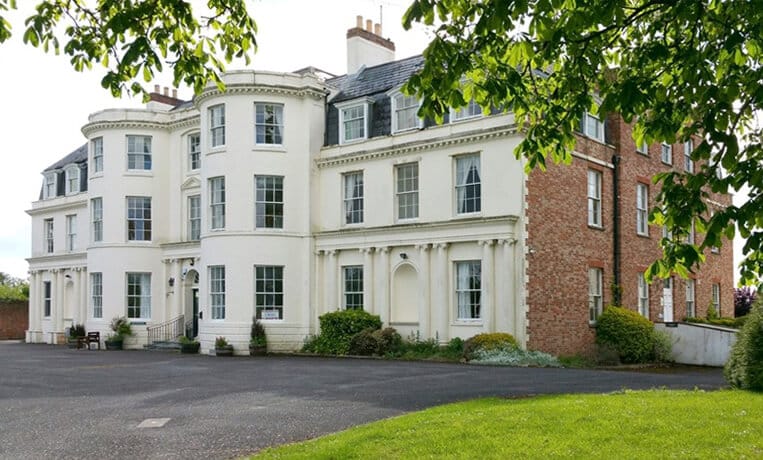
The cost of rehab in Luton varies depending on the type of treatment you have, and on things like the length of your stay if you are attending a residential rehab centre, and the type of room you have.
Outpatient treatment is generally cheaper than inpatient care, though this option may not be available for all, owing to their needs.
A 10-day detox in a residential rehab centre with single-room occupancy can cost around £3,000-£6,000. If opting for a multi-occupancy room, this cost will be around £2,000-£4,000.
With stays up to 28 days in length, then the cost of the stay would be between £8,000-£12,000 in a single occupancy room at rehab, or the lesser cost of £6,000 if opting for multi-occupancy boarding.
These prices include all your specialist rehab treatments and your detoxification, all meals you will have at the centre for the duration, and boarding costs.
Having a home detox does come to a lot cheaper at around £1500, but it is without the protection from temptations, and constant round-the-clock care from on-site staff.
Residential rehab in Luton is much more successful for the longevity of sobriety and remaining clean.
For a more personalised estimation of how much your time at a drug and alcohol rehab in Luton will cost, talk to our team today on 0800 140 4690

All the rehab clinics that we refer people to come with a cost owing to them being private, however, if you have a limited budget, this may be of concern.
If there is not an option of private treatment in Luton that you can afford, there are other options available such as public-funded services which come at no cost.
There are pros and cons to both treatment options.
Public-funded rehab treatment options come at no cost, [12] and so will not have the financial strain upon you.
However, there is usually a waiting list [13] to access these services which can be lengthy, which only prolongs the illness.
Address: 28-30 Meadway, Bedford, MK41 9HU
Telephone: 01234 341 977
Website:https://www.centralbedfordshire.gov.uk/info/113/youth_services
Address: 2-12 Victoria Street, Luton, LU1 2UA
Telephone: 0800 054 6603
Website: www.resolutions4luton.org
Address: 21 The Crescent, Bedford, MK40 2RT
Telephone: 01234 352 220
Website: www.elft.nhs.uk/service/299/Path-to-Recovery-P2R-Drug-and-Alcohol-Service-for-Bedford-Borough
Address: Stockwood Park, Luton, Bedfordshire, LU1 3AJ
Telephone: 01234 838 771
Website: http://bedsrcc.org.uk/the-bridge/
Address: 5-7 Rush Ct, Bedford, MK40 3JT
Telephone: 01234 893 300
Website: https://www.elft.nhs.uk/camhs/where-we-work/north-bedfordshire-camhs
Other organisations you can reach out to that provide free addiction services include local NHS Foundation Trusts, Turning Point, We Are With You, National Association for Children of Alcoholics, Change Grow Live, Al-Anon and Alateen.
Rehabs and organisations are advised by the American Society of Addiction Medicine [15] and the National Institute for Health and Care Excellence [16] so you are in safe hands with person-centred care.
You may also be offered sober living houses as part of your aftercare after you leave rehab in order to help you maintain your sobriety.
Private centres in Luton offer tailored personalised treatment plans for those attending and carry no waiting time, so help is available right away.
Although they do come at a cost, it will usually mean you get access to greater standards of care, facilities and accommodation.
The advice can be provided to those looking at funding private treatment, with varying options discussed as well as looking at ways to keep the costs of private treatment lower.
These can be gone over with a member of the team.
To get help choosing between private and public rehab, call our expert team on 0800 140 4690

Those going through alcohol addiction can have an alcohol detox that is normally done with the aid of a specialist medication named Librium.
This medication works by reducing the anxiety and physical side effects that come with alcohol withdrawal symptoms. [32]
This medication can also be used by those detoxing in the home, however only for those that are drinking less than 30 units of alcohol each day.
Alcohol dependence [33] can be established using the Alcohol Use Disorders Identification Test, [34] DSM-5 [35] or the CAGE Questionnaire. [36]
Heavy drinkers [37] will have built up a strong tolerance to alcohol and get withdrawal symptoms or alcohol withdrawal syndrome when they stop drinking.
To ensure that the risk of seizures is curtailed a medical team may prescribe patients with Chlordiazepoxide, brand name Librium, as they undergo detox as this has been shown to offer extra protection against the risk of seizures.
You might also be given Buprenorphine, Acamprosate [38], Naltrexone [39] and a wide variety of anti-anxiety medications such as Paroxetine, [40] Nefazodone [41] and their various alternatives. [42]
You must get a medically-assisted detox in order to try to prevent the effects of alcohol, including encephalopathy (Wernicke Encephalopathy [43]) and delirium tremens.
There is also another type of detox that is done in some treatment centres [44]in Luton, wherein a person continues to drink alcohol each day but gradually reduces their intake, cutting down before stopping completely.
This is known as a wet detox.
If you would like more information on these types of treatment, our team can advise you on them whilst discussing your options with you.
Make sure your detox is safe and effective with the help of an alcohol detox in Luton by calling us on 0800 140 4690

Alcohol addiction is physical, and so when a person suddenly stops, [45] they will experience withdrawal symptoms that can be unpleasant.
When a person decides to stop drinking without supervision, it can have implications for them and cause complications, such as seizures, tremors and even heart attacks.
When detoxing in a rehab clinic, patients will be given Librium and be supervised by a specially trained team, which will ensure their safety throughout the entire process.
Withdrawal symptoms from alcohol can usually last between 7-10 days to pass fully.
Following completion of the detox segment of treatment, patients usually remain in the residential centre in Luton for up to 28 days.
This is to complete a series of cognitive therapies to treat the emotional and psychological aspects of alcohol addiction.
Although a long time, the full-length someone will spend in rehab does not compare to the time it takes to recover completely from addiction, which typically takes anywhere from six months to five years. [46]
Don’t take the risks of an unmanaged alcohol withdrawal – get professional support from a drug and alcohol rehab in Luton by calling us on 0800 140 4690

Cocaine is not physically addictive, but it is addictive psychologically. Using cocaine for a long period of time can have negative effects such as anxiety, depression and panic attacks.
Entering a rehab treatment centre for cocaine addiction can help you, as you will be removing yourself from the current temptations in your life which will help you focus on your therapy.
These therapies include Cognitive Behavioural Therapy (CBT), learning to manage relapse triggers [47] and providing contingency management.
CBT in particular has an extremely high success rate [48] with very low chances of relapse [49], although some individuals will find it less effective [50] due to pre-existing conditions like personality disorders [51] or learning disabilities.
Beat your addiction to cocaine with the help of a drug and alcohol rehab in Luton. Call us today on 0800 140 4690

Heroin is a physically addictive drug that those with an addiction to this substance will need to go through detox in order to help them stop.
When detoxing at a rehab clinic in Luton, a special medication will be offered to help alleviate some of the withdrawal symptoms (heroin withdrawal). These medications can include Subutex which is a slow-acting opioid.
A person having treatment for heroin addiction will stay in the residential rehab centre in Luton for up to 28 days following the detox.
This is to complete further therapies such as CBT to help with their addiction. Other treatments may include holistic therapies.
You will also receive treatment or information for any other effects of heroin, such as hepatitis.
Beat your addiction to heroin with the help of a drug and alcohol rehab in Luton. Call us today on 0800 140 4690

There are many chronic health issues that arise from the prolonged use of cannabis such as issues with anxiety, mental health, mood swings and psychosis. Its usage can also cause issues with sleeping.
Cannabis is sometimes thought of as harmless, but this is simply not the case. It has the potential to cause irreparable damage to many people’s lives.
By seeking help from rehab professionals, it can help you with addiction to cannabis, who can help with addressing the reasons why you have been pushed towards using the substance.
Beat your addiction to cannabis with the help of a drug and alcohol rehab in Luton. Call us today on 0800 140 4690
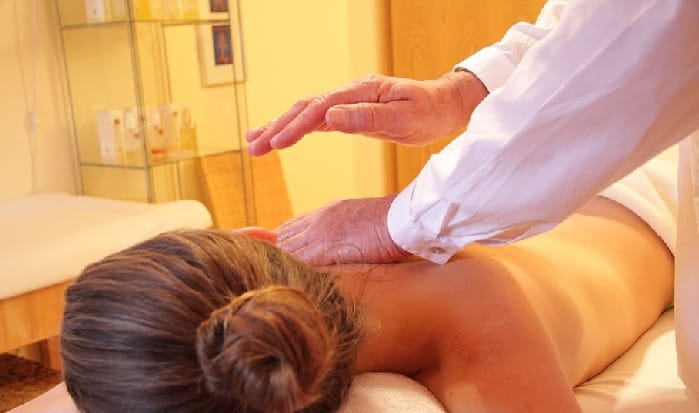
An important factor during therapy is relaxation, which is why treatment centresin Luton are set up in a comfortable, luxurious and relaxing environment.
This enables patients to concentrate fully on their treatment programmes and build up their self-confidence and ability to recover. [52]
To experience any of these excellent therapies through a drug and alcohol rehab in Luton, call us today on 0800 140 4690

Whilst you’re in rehab, the team will go over important ways to remain clean and sober once you leave the programme.
This is always essential as, although it can be managed, addiction cannot be fixed. [53]
There are a number of ways in which you can do this, by putting in place simple steps to ensure you’re doing all you can to stay sober for good. [54]
Relapse is sadly a common occurrence [56] in many addiction sufferers, but a solid relapse prevention plan will help to ensure that you stay on the right path.
Call our expert team today on 0800 140 4690
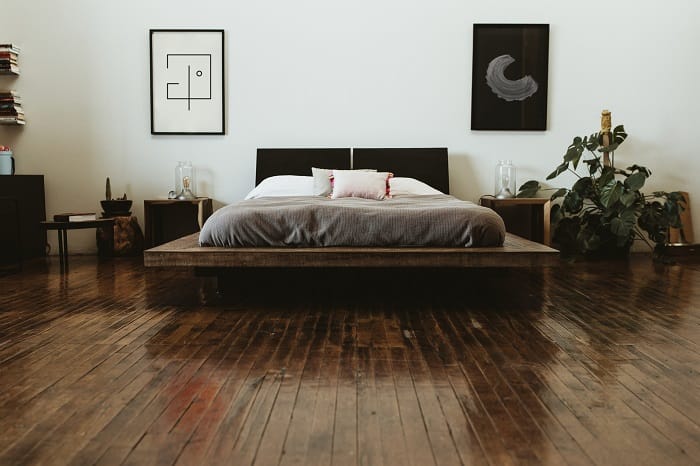
For those who don’t want to attend an inpatient rehab facility in Luton, there are alternative options available.
Call our expert team today on: 0800 140 4690
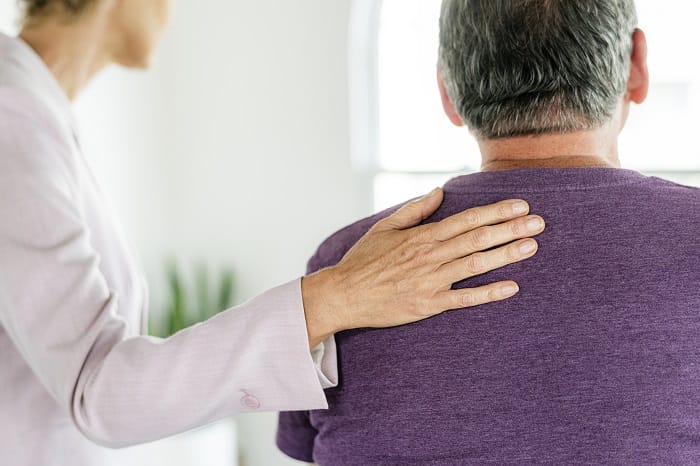
It is not uncommon for the reality of addiction to be met with flat-out denial.
If your loved one is refusing to accept [61] the reality of their addiction, then we recommend you reach out to an addiction interventionist.
We are able to recommend such a service in your area in Luton or near Luton if you reach out to our helpline.

On entering rehab, some people will gain a dual diagnosis. This will be given by the doctor during the assessment process.
A dual diagnosis is quite common for people who have addictions.
Upon arrival, you will undergo a psychiatric assessment in order to determine your specific needs.
Many different mental health problems [62] tend to exist alongside addiction, such as:
At the beginning of drug or alcohol journeys, people might use substances to try and feel good, relaxed, etc.
When people do this over a period of time, an addiction can develop.
A dual diagnosis is useful for the medical team as they might prescribe additional medications to help manage your symptoms.
Also, some people might require additional therapies to address their mental health condition.
It’s important both the addiction and mental health conditions are both addressed at rehab.
Many organisations across the UK offer free mental health support, whether you are also suffering from addiction or not.
Some of the most useful include Mind UK, Young Minds, Rethink Mental Illness, Samaritans and Papyrus.
Call our expert team today on: 0800 140 4690

To discover how Rehab 4 Addiction is able to help you defeat your addiction and reclaim the rest of your life, call our admissions team today on 0800 140 4690 or alternatively send a message through our contact form.
With over a decade under our belt helping people in Luton transform their lives and defeat their addiction, we are 100% confident we can also help you too.
Every rehab in England and Wales that we work with is supervised by the Care Quality Commission. [65]
Rehab 4 Addiction officers a range of addiction treatments across Bedfordshire, including Luton, Peterborough, Dunstable, Leighton Buzzard, Woburn, Biggleswade, Mauldon, Haughton Regis, Cranfield, Marston Moretaine and many others.
This article was written by Boris Mackey. You can connect with Boris online at LinkedIn or X.com.
[1] https://nida.nih.gov/publications/drugs-brains-behavior-science-addiction/drug-misuse-addiction
[2] https://pubs.niaaa.nih.gov/publications/aa63/aa63.htm
[3] https://www.ncbi.nlm.nih.gov/pmc/articles/PMC5328289/
[4] Missing
[5] https://www.ncbi.nlm.nih.gov/pmc/articles/PMC4402015/
[6] https://onlinelibrary.wiley.com/doi/abs/10.1111/j.1360-0443.2007.01871.x
[7]https://www.tandfonline.com/doi/full/10.31887/DCNS.2009.11.3/wrenthal
[8] https://nida.nih.gov/research-topics/recovery
[10] https://www.niaaa.nih.gov/alcohol-health/overview-alcohol-consumption/moderate-binge-drinking
[11]https://www.ahrq.gov/prevention/guidelines/tobacco/5steps.html
[14] https://www.nhs.uk/Live-well/addiction-support/drug-addiction-getting-help/
[16] https://www.nice.org.uk/guidance/health-protection/drug-misuse
[18] https://www.recoveryanswers.org/research-post/recovery-attempts-review/
[19] https://www.mayoclinic.org/diseases-conditions/alcohol-use-disorder/symptoms-causes/syc-20369243
[21] https://www.ihs.gov/asap/familyfriends/warningsignsdrug/
[22/23] https://www.ncbi.nlm.nih.gov/pmc/articles/PMC6876531/
[24] https://www.cdc.gov/alcohol/fact-sheets/womens-health.htm
[26/27] https://www.cdc.gov/alcohol/fact-sheets/alcohol-use.htm
[28] https://www.niaaa.nih.gov/publications/alcohol-and-brain-overview
[30] https://pubs.niaaa.nih.gov/publications/aa22.htm
[32] Removed
[33] https://www.mayoclinic.org/diseases-conditions/alcohol-use-disorder/symptoms-causes/syc-20369243
[35] https://www.ncbi.nlm.nih.gov/books/NBK92053/table/ch2.t5/
[36] https://www.mdcalc.com/calc/1729/cage-questions-alcohol-use
[37] https://www.nhs.uk/live-well/alcohol-advice/the-risks-of-drinking-too-much/
[38] https://effectivehealthcare.ahrq.gov/products/alcohol-misuse-drug-therapy/consumer
[39] https://www.aafp.org/pubs/afp/issues/2016/0315/p457.html
[40] https://www.ncbi.nlm.nih.gov/pmc/articles/PMC5614930/
[41] https://agapetc.com/what-is-the-best-antidepressant-for-an-alcoholic/
[42] https://www.rehab4addiction.co.uk/addiction-treatment/naltrexone-implant
[43] https://premierneurologycenter.com/blog/neurologic-diseases-associated-with-alcohol-consumption/
[44] https://www.ncbi.nlm.nih.gov/books/NBK385382/
[46] https://www.racnj.com/the-five-stages-of-addiction-recovery/
[48] https://gpsych.bmj.com/content/32/5/e100087
[49] https://pubmed.ncbi.nlm.nih.gov/32954958/
[50] https://www.ncbi.nlm.nih.gov/pmc/articles/PMC7001356/
[51] https://www.ncbi.nlm.nih.gov/pmc/articles/PMC6241194/
[53] https://nida.nih.gov/publications/drugs-brains-behavior-science-addiction/treatment-recovery
[54] https://www.newdirectionsforwomen.org/what-percentage-of-alcoholics-recover/
[55] https://www.painscale.com/article/the-4-c-s-of-addiction
[56] https://www.tpoftampa.com/how-common-is-relapse-after-rehab-and-how-can-it-be-avoided/
[57] https://meetings.ukna.org/meeting/Luton
[58] https://www.alcoholics-anonymous.org.uk/AA-Meetings/Find-a-Meeting/Luton
[59] https://meetings.cocaineanonymous.org.uk/Luton
[60] https://uk.meetings.smartrecovery.org/Luton
[61] https://www.mountsinai.org/health-library/selfcare-instructions/deciding-to-quit-drinking-alcohol
[62] https://www.niaaa.nih.gov/publications/brochures-and-fact-sheets/understanding-alcohol-use-disorder
[63] https://iv.iiarjournals.org/content/24/5/761
 Addiction is often largely misunderstood, with many incorrectly labelling it as a lack of willpower, a moral failing or something that happens after a series of bad choices. When, actually, addiction is much more complex. It can be shaped by a number of things, such as trauma, mental health, the environment you grew up in […] .... Read More
Addiction is often largely misunderstood, with many incorrectly labelling it as a lack of willpower, a moral failing or something that happens after a series of bad choices. When, actually, addiction is much more complex. It can be shaped by a number of things, such as trauma, mental health, the environment you grew up in […] .... Read More
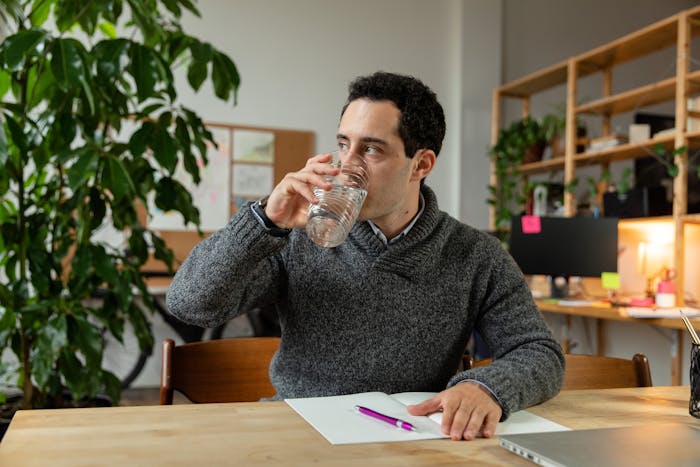 After completing or trying your best for Dry January, it can be tempting to count the days left until you can give it all up and return to drinking. But there are multiple benefits to maintaining your abstinence into February and longer. During Dry January, your liver begins to repair itself, say if you were […] .... Read More
After completing or trying your best for Dry January, it can be tempting to count the days left until you can give it all up and return to drinking. But there are multiple benefits to maintaining your abstinence into February and longer. During Dry January, your liver begins to repair itself, say if you were […] .... Read More